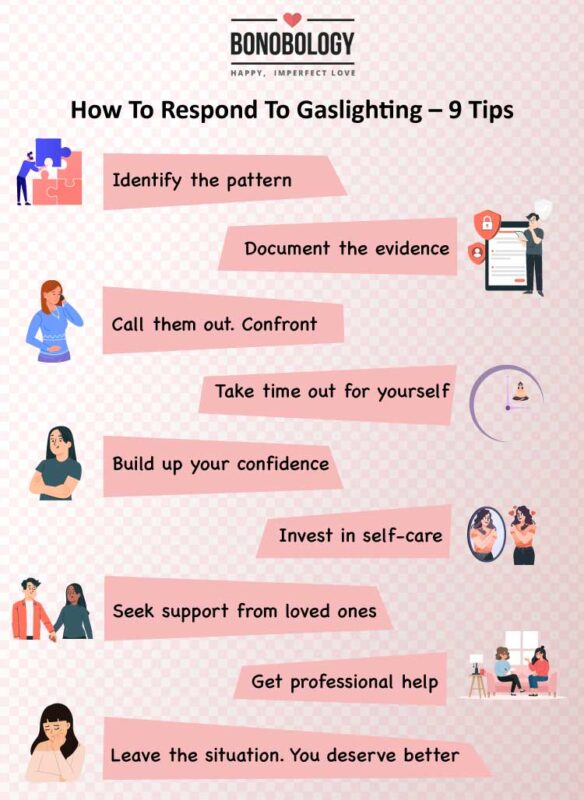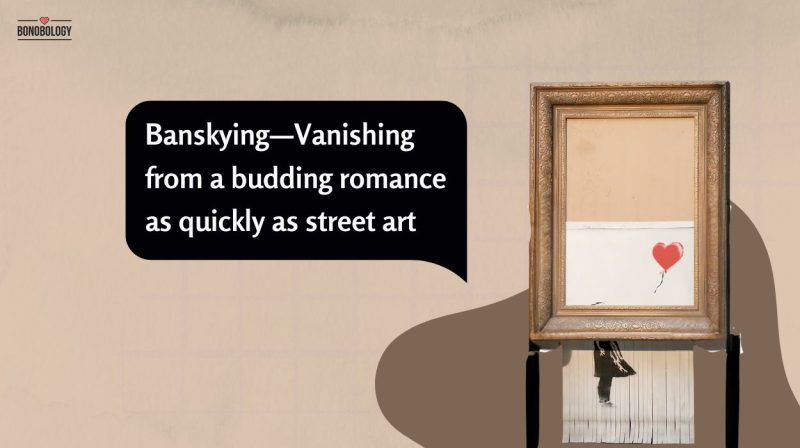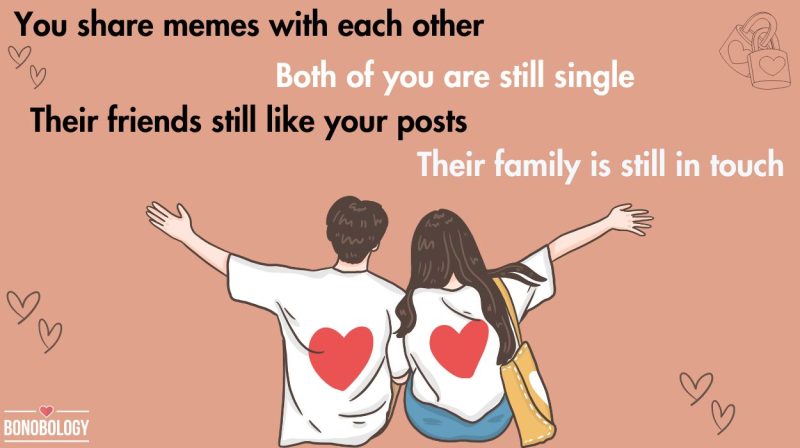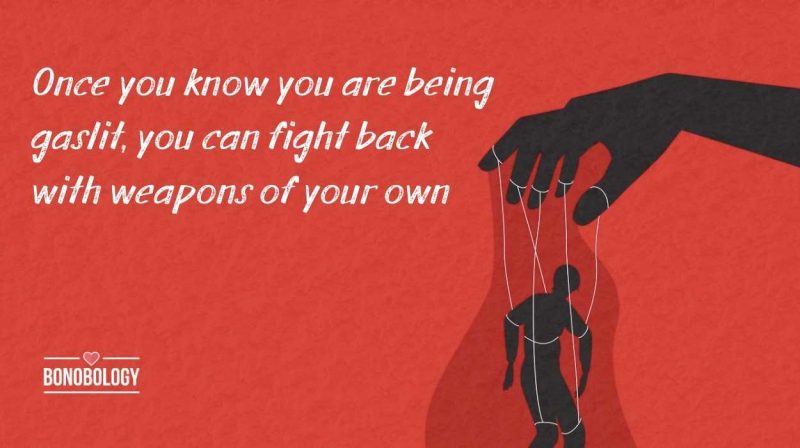Often in life, we are unfortunate enough to have to deal with people who put our mental health in constant jeopardy. Perhaps, the worst of the lot are gaslighters. Gaslighters are master manipulators who will often make you question your own sanity just to gain leverage over you. Knowing how to respond to gaslighting is crucial to protect yourself from the scarring effects of this manipulation technique.
Blaming yourself in such situations may come easier than responding to a gaslighter in a manner that can help break this toxic pattern. Unless you know what it is, what are its tell-tale signs, spotting such insidious patterns and knowing how to respond when someone gaslights you often proves difficult, especially since acknowledging that the person you love is toxic is easier said than done.
With the help of relationship and intimacy coach Utkarsh Khurana (MA Clinical Psychology, Ph.D. Scholar), who is a visiting faculty at the Amity University and specializes in anxiety issues, negative beliefs, and individualism in a relationship, to name a few, we’re here to help you stand your ground against this constant manipulation with a lowdown on the best way to respond to gaslighting, no matter what the situation.
What Is Gaslighting?
Table of Contents
When someone intentionally manipulates you into doubting your feelings, memory, or your perception of reality, it is called gaslighting. Gaslighting is a form of abuse. Utkarsh explains it by giving an example, “I do something wrong and when my partner points it out, I deny the accusation and act as if it did not happen. If this is repeated several times, my partner may begin questioning the validity of their perception.” Learning how to outsmart a gaslighter is not easy.
Gaslighting confuses you and makes you doubt yourself. It’s ironic how this self-doubt makes it near impossible to recognize and outsmart a gaslighter. Usually, in abusive relationships, a gaslighter uses their partner’s self-doubt to constantly undermine their agency of choice. Utkarsh says, “A gaslighter may be aware that they are gaslighting but their defense mechanism will make them justify it by believing that they are doing it to protect themselves.”
Unconscious gaslighting is rare but it can happen. Sometimes your partner may gaslight you without even understanding what they are doing. They are simply following a pattern they will have developed over the years without ever being aware of it. Responding to a gaslighter, who is blissfully unaware of their toxic patterns, can be even trickier. Since they lack any iota of self-awareness, it gets that much harder to make them see the error of their ways.
Owing to their narcissistic tendencies, gaslighters shouldn’t be touched with a 10 feet barge pole, let alone dated. But to learn how to respond to a narcissist gaslighting you or to figure out how do you shut down a gaslighter, you must be able to first recognize that you are being gaslighted. Once you do realize, much to your dismay, that your romantic partner, one who you love, adore, and depend on, may have been gaslighting you to get their way, you can focus on how to stand up to a gaslighter.
How To Recognize Signs You Are Being Gaslighted
Before taking any radical steps, the first order of business is to identify the signs of gaslighting. It usually starts small but gaslighters tend to keep taking control of more and more mental and physical space for themselves if you keep taking it lying down. The easiest way to spot gaslighting is when your partner follows repetitive patterns of manipulative behavior.
Utkarsh says, “If your partner is completely denying the situation without even acknowledging what you are feeling or your experiences, it means they are completely disregarding your reality and even your existence.” The more you question reality and doubt yourself, the more you find yourself depending on your gaslighting partner to function. If an egotistical person starts to manipulate you in the name of romance while undermining your mental health, it would be a classic example of narcissist gaslighting. Some other signs of gaslighting in a relationship are:
1. They invalidate your concerns or emotions
They will invalidate your concerns or emotions so they can always remain the center of attention. Discrediting your reality is how narcissist gaslighting operates. They say things like:
- “You’re imagining things”
- “No need to be so sensitive. I was only joking”
- “Nothing happened. Stop overreacting”
Related Reading: Passive-Aggressive Behavior In Relationship: Signs & Examples
2. They mock you and ridicule your opinions
Think about how a gaslighter makes you feel. Small? Insignificant? Unimportant? A common instance of unconscious gaslighting is when they mock you and ridicule your opinions in front of others. This sort of gaslighting is often disguised as misogynistic humor. They say things like:
- “Awww, you are so cute, but that’s not true”
- “Let it be. You don’t know anything about….”
- (To others) “She loves gossiping”
- (To others) “Awwww, he thinks he knows a lot about how money works”
3. They trivialize your wins
Won a competition? They will remind you it’s not really a big deal and immediately start listing the times they won bigger, better competitions. Trivializing your wins and making it all about themselves is how narcissist gaslighting operates. And learning how to respond to a narcissist gaslighting you will require you seeing them for who they are. They say things like:
- “C’mon! Don’t make it into such a big deal.”
- “C’mon! Now you are just boasting.”
- “That’s great but let me tell you of the time when I…”
4. They retell events and deny your version
When you call out a gaslighter, they will cook up a story to counter your version of the events. If your partner often denies your version of what happened, always has a counter story that is markedly different from yours, and finds a way to always shift the blame on you, then you, my friend, are being gaslighted. How does a gaslighter make you feel? Mostly unsure of yourself, confused, meek and dazed. They say things like:
- “Are you crazy? That’s not how it happened.”
- “That’s not how I remember it.”
- “You have no idea what you’re talking about”
5. You feel an urge to say sorry all the time
This sign is about how you feel when you are being gaslighted. You are in constant self-doubt about how you feel, especially in regard to your anger or complaint toward them. You feel a loss of self-confidence. You worry and remain anxious most of the time. But mostly it always seems like you are the one who ends up apologizing on every issue.
Gaslighters are usually so used to treating their partners as inferior, they don’t even notice the damage they are causing. If you have heard your partner say some of these iconic lines that we mentioned earlier, I am sad to say that you may have a gaslighter on your hands. If you are only just discovering that you are in a relationship with a gaslighter, this is no time to panic. Once you know how to respond to gaslighting, it is all about coming up with a plan and following through, step by step.
Related Reading: 20 Gaslighting Phrases In Relationships That Kill Love
How To Respond To Gaslighting – 9 Tips
Courtney found herself unable to decide her order while she and her partner were out on a double date with her best friend, Sharon, and her fiancé. The friends were meeting after almost a year, owing to being stuck in different cities for the entire duration of the pandemic, and Sharon was taken aback to see her once self-assured, confident friend looking to her partner’s approval on what she should eat.
“Just get whatever you feel like,” an exasperated Sharon finally said. “I think I want the steak but I don’t know…” her voice trailed off. “You don’t even like steak. Besides, in this day and age, how can someone choose to eat a steak knowing how much the meat industry contributes to global warming,” her newly turned vegan boyfriend responded.
“Yes, I’m not sure if I even like steak. I’ll have a salad instead,” a visibly disappointed Courtney responded. Though Courtney was still blind to what was being done to her in the name of love, Sharon saw the red flags immediately. She knew she had to help her friend figure out a way to respond to gaslighting in a relationship, lest it chips away at her self-esteem and self-worth.
Unfortunately, examples like Courtney’s are all around us. There is no way to know when you may have the misfortune to cross paths with a gaslighter. Even when you are in constant contact with one, it may still be hard to recognize them for the manipulator they are. This makes it even more important to recognize the signs and know how to respond to gaslighting in case you ever find yourself in such a situation.
1. Identify the pattern
If you want to respond to gaslighting, know that it begins with identifying the pattern. So, the biggest, bravest step while countering gaslighting is the first one i.e. identifying the toxic patterns of your partner. If you see them always mocking what you say or trivializing your opinions, there is a chance you may be dealing with a gaslighter.
Focus more on their actions as well as their words. If their actions are inconsistent with what they are saying, it is a clear indicator that they are trying to manipulate you. To effectively respond to gaslighting in a relationship, you need to take off the rose-tinted glasses and view your dynamic pragmatically. But when you’re emotionally invested in another, spotting the silent relationship red flags and acknowledging them for what they’re can be the hardest thing to do.
In such situations, it’s best to lean on a trusted ally – a friend, family, confidant – and trust their judgment. If your loved ones have been telling you there is something amiss in your relationship dynamics, pay heed rather than brush off their concerns. Only then can you begin to figure out how to respond when someone gaslights you.
Related Reading: He Would Abuse And Then Apologize – I Got Trapped Into This Vicious Cycle
2. Take a step back
Gaslighting victims have to constantly put up with intense fear, anger, and anxiety. This can progressively eat away at their mental health to a point where they start losing their faculties and their ability to respond to gaslighting. This vulnerability is recognized by their gaslighters as a chance to manipulate them further.
It’s not always easy to respond to someone gaslighting you and break away from such toxicity. Once this pattern has gone on long enough, they may succeed in making you believe that they’re the only one you can depend on, creating an unhealthy power dynamic in the relationship. Thus, the longer it goes on, it gets progressively harder to deny them what they want.
In such cases, it is important to carve out some space for yourself. Try going out for walks alone. Breathing exercises and meditation can also help keep you calm and thinking rationally. Taking time out for yourself and away from your abuser can work wonders when you are trying to process and, eventually, escape such situations.
The best way to respond to gaslighting is to regain control of your life, your agency, and your confidence in your abilities to make sound decisions, bit by bit. Creating some distance between yourself and your partner can help you do that. When you ignore a gaslighter, you leave the predator without the thrill of their hunt.

3. Document the evidence
Gaslighting is rarely a one-time event. Gaslighters usually carry out their toxic patterns and plans repeatedly. A favorite trick of theirs is denying things they have done or said so you end up doubting yourself. Fixing such a toxic relationship can get nigh on impossible, making you feel trapped and suffocated.
If this sounds like something you’ve been facing, it is important to start collecting and storing evidence like screenshots of texts and emails, recordings of your phone conversations, and detailed daily journals. Whether you’re looking for ways to respond to gaslighting at work or in a relationship, having concrete proof to back your understanding of what’s being done to you is essential.
If you have the proof on your side and know that your partner is lying through their teeth, not only will it help you see their manipulative patterns clearly but also make it much easier to shut down a gaslighter. Evidence can also help you process things better and realize that you’re not really going crazy and that something really is wrong. And, if matters ever take a turn for the worse and you decide to get a restraining order, the evidence can help you in court.
4. Confront
This is the one of the hardest responses to gaslighting for many of the victims. When someone is used to being dismissed, ignored, and spoken down to, they start developing an unsure and submissive attitude. Calmly calling out gaslighters on their lies and rude behavior may often discourage them from victimizing you. Respond to someone gaslighting you in the guise of humor by simply asking them to explain what makes the offensive “joke” funny.
If you decide to respond to your gaslighting husband or wife or long-term partner, know that it can prove significantly harder since they may quickly turn volatile and violent. In such cases, it is important to know that you can ask for help. Approach such conversations in safe spaces, with friends or loved ones around or nearby. Call up your friends for support.
Having someone who has your back can significantly help with your confidence when you decide to respond to gaslighting. When using confrontation as a means of responding to a gaslighter, always bear in mind that there will be push back in some form or the other. You must cover all your bases.

5. Build up your confidence
If you are already keeping evidence of the conversations and situations when your partner tries to gaslight you, building up your confidence enough to confront them may prove to be much easier. Remember, your self-doubt is their biggest weapon so it’s extremely important not to let it worm its way into your head.
The more you doubt yourself, the easier it will be for them to make you a victim of manipulation in the relationship. They might try to draw you into conflict so they can keep harassing you and undermine your confidence. So, how do you shut down a gaslighter in a situation like this? Reaffirm yourself and simply refuse to engage. You know them. You have put in the work to identify their patterns.
Now, it’s time to stop giving them access to your vulnerabilities, which is their only weapon against you, and start dismantling everything from the inside. The best way to respond to gaslighting is to build your confidence and self-worth from the ground up so that you are immune to their manipulative tactics.

6. Invest in self-care
Self-care is the most holistic way of responding to gaslighting. Pampering yourself and giving your mind and body the care they need to heal is important when you are trying to respond to gaslighting. When you ignore a gaslighter, they are often taken by surprise. It may not sound like much but the calmer and more collected you are, the harder it will be for gaslighters to manipulate you.
These people prey on vulnerabilities. Present them with calm confidence and they would simply scuttle away to look for easier prey. Besides, unless you invest in self-care and reintroduce yourself to the concept of putting yourself first and investing in self-preservation, you cannot figure out how to respond when someone gaslights you.
7. Ask your loved ones
If you are starting to realize that you are being manipulated and want to respond to gaslighting, it may be time to involve the people who are close to you. Your toxic boyfriend or girlfriend will rely on isolating you from your support system so they can take advantage of you. Instead of letting them get away with that, reach out to your loved ones for help and advice.
Gaslighters have a much harder time getting away with their games when faced with a group that simply sees through their attempts at manipulating the victim. A fresh perspective from your friends can also help you identify the toxic patterns and develop a plan to counter them.
8. Get a professional opinion
While asking your family and friends to stand by you is a necessary step, sometimes it may not be enough to turn the tide. After all, they cannot always be with you to stave off your partner’s gaslighting. Seeking professional help and therapy is always a good idea in such cases. Your therapist can show you sustainable ways of responding to gaslighting that can help protect you from emotional abuse even while confronting your biggest fears.
Gaslighting victims also tend to develop psychological issues like lack of confidence or anxiety. This may interfere with their work or everyday life. Having a professional therapist guide you through such trying times can make all the difference. If you need help in determining how to respond to gaslighting in a relationship, skilled and experienced counselors on Bonobology’s panel are here for you.
9. Leave the relationship
No matter the advice or help you get, it is never easy to leave a relationship where your partner has manipulated you into thinking you need them to function. But, the only way to safeguard yourself from mental health issues and take control of your life is to cut ties with them completely.
When you decide to stand up for yourself and respond to gaslighting, remind yourself that you deserve better. You deserve a loving partner who does not undermine you at every turn, every step. You deserve encouragement and happiness from a romantic relationship.
Key Pointers
- Gaslighting is a form of abuse where someone intentionally manipulates you into doubting your feelings, memory, or your perception of reality. It confuses you and makes you doubt yourself
- When your partner invalidates your concerns, mocks you and ridicules your opinions, trivializes your wins, denies your version of things and always shifts blame on you, you might have a gaslighter on your hands
- In the company of a gaslighter, you always end up apologizing, doubting yourself, feeling under-confident, and anxious
- To be able to stand up to a gaslighter, you must identify the pattern of gaslighting you are witnessing, take a step back when needed, document the evidence, and confront
- To gain the confidence to do that, you need to invest in self-care, take support from loved ones, and get professional help. If needed, it might be best to leave
Knowing how to respond to gaslighting can become easy. It’s the recognition, confrontation, and implementation that takes courage. In the end, if you’re with someone who consciously or unconsciously gaslights you, it is important to remember that you are not alone. It is your life and you are allowed to leave.
If you don’t feel up to a confrontation, know that it’s okay to skip it entirely. Leave quietly without letting them engage with you and ridicule you to stop you from leaving. When they realize they’re losing control, they may lie, try to misdirect you, or turn violent. So, not wanting to take that risk at all is valid.
FAQs
They mostly do and even after self-introspection might justify it as a means to protect themselves. Their narcissistic tendencies ensure they do not regret their behavior. Unconscious gaslighting is a rarer example of gaslighting. In this case your partner may gaslight you without even understanding what they are doing.
Our expert, Utkarsh says, “Individuals with high unmet needs and high self-doubt, and individuals who are not connected with their authentic self are most susceptible to gaslighting.”
A gaslighter is a person who tries to gain power over another person by twisting the narrative in such a way that the perceived reality is always in their favor. More often than not, this person has learnt this technique from their childhood as a sort of survival mechanism.
Your contribution does not constitute a charitable donation. It will allow Bonobology to continue bringing you new and up-to-date information in our pursuit of helping anyone in the world to learn how to do anything.






















